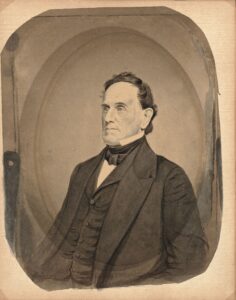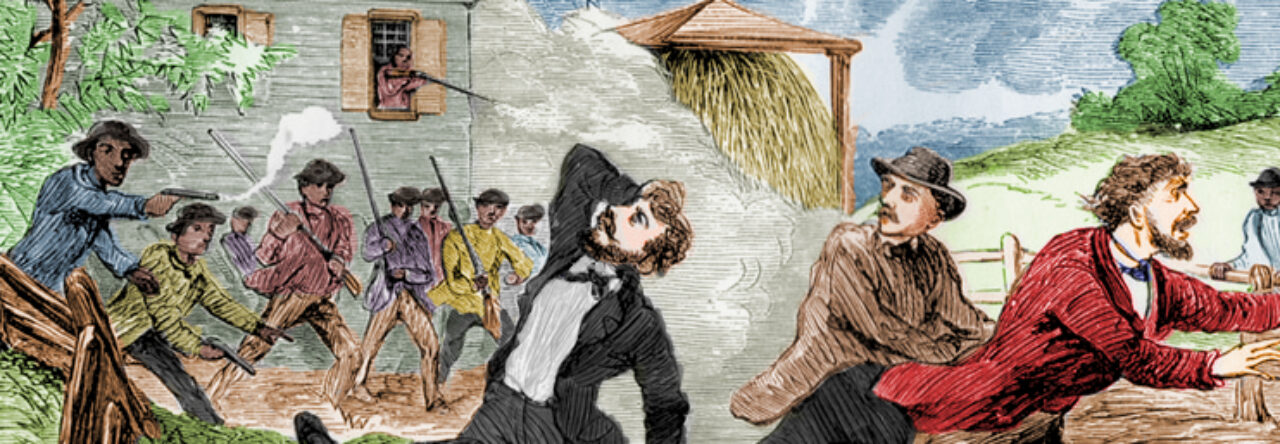Maine authorities’ refusal to extradite abolitionist sailors who helped a Georgia freedom seeker escape reveals the deepening breakdown of comity between slave and free states
Date(s): escaped May 4, 1837
Location(s): Savannah, Georgia; Maine
Outcome: Reenslavement of Atticus, refusal to extradite Maine sailors
Summary:

Maine governor Robert P. Dunlap refused to extradite two Maine sailors to face slave stealing charges in Georgia (Digital Maine)
In May 1837, an enslaved carpenter named Atticus crafted his own way to freedom aboard the vessel Susan. Owned and operated by Maine sailors, the Susan (also known as the Boston) was lying in port in Savannah, Georgia for repairs. The Mainers hired Savannah carpenter and slaveholder James Sagurs to finish repairs to the ship, and Sagurs brought Atticus along to work. Knowing the Susan would set sail on May 4, Atticus stowed away on board. Once the Susan reached Maine, Captain Daniel Philbrook and Edward Kelleran assisted the freedom seeker. But other local men, learning of the reward Sagurs had offered for Atticus’s recapture, seized the freedom seeker and sent him back into slavery by boat. But the case was far from over. Georgia governor William Schley demanded the extradition of Philbrook and Kelleran to face slave stealing charges in Georgia. Maine governor Robert Pinckney Dunlap refused to extradite the two sailors, and Maine’s legislature continued to stand its grown as late as 1841, four years after Atticus’s escape. The case was a sign of the deepening breakdown of comity between slave and free states and foreshadowed a similar confrontation over extraditions sailors between Virginia authorities and New York governor William Seward in 1839.
Related Sources
- Affidavit of James Sagurs, June 16, 1837
- Request for Extradition of Philbrook and Kellerun from William Schley, Governor of Georgia, June 21, 1837
- Letter from Governor Schley to Governor Dunlap expressing anger at Dunlap’s refusal to extradite, September 7, 1837
- Letter Supporting Captain Daniel Philbrook Against Charge of Slave Stealing by State of Georgia, March 7, 1838
- Appointment of George G. Millen as agent to receive fugitives Philbrook and Killerun [Kellerun], April 27, 1838
- Letter from Governor Gilmer to Governor Dunlap Enclosing Indictment and Requesting Extradition of Philbrook and Kellerun, April 27, 1838
- Extradition Request From Georgia For Philbrook and Kellerun, May 2, 1838
- Letter from Governor Gilmer to Governor Kent Demanding Extradition of Philbrook and Kellerun, May 2, 1838
- Letter from Governor Gilmer to Governor Kent regarding Maine’s renewed refusal to extradite, August 23, 1838
- Letter from Governor McDonald to Governor Kent Requesting Extradition of Philbrook and Kelleran, October 4, 1841,=
- [Draft] Report of the Judiciary Committee Upon the Controversy Between Georgia and Maine [Senate Doc 27, 21st Legislature], 1841
